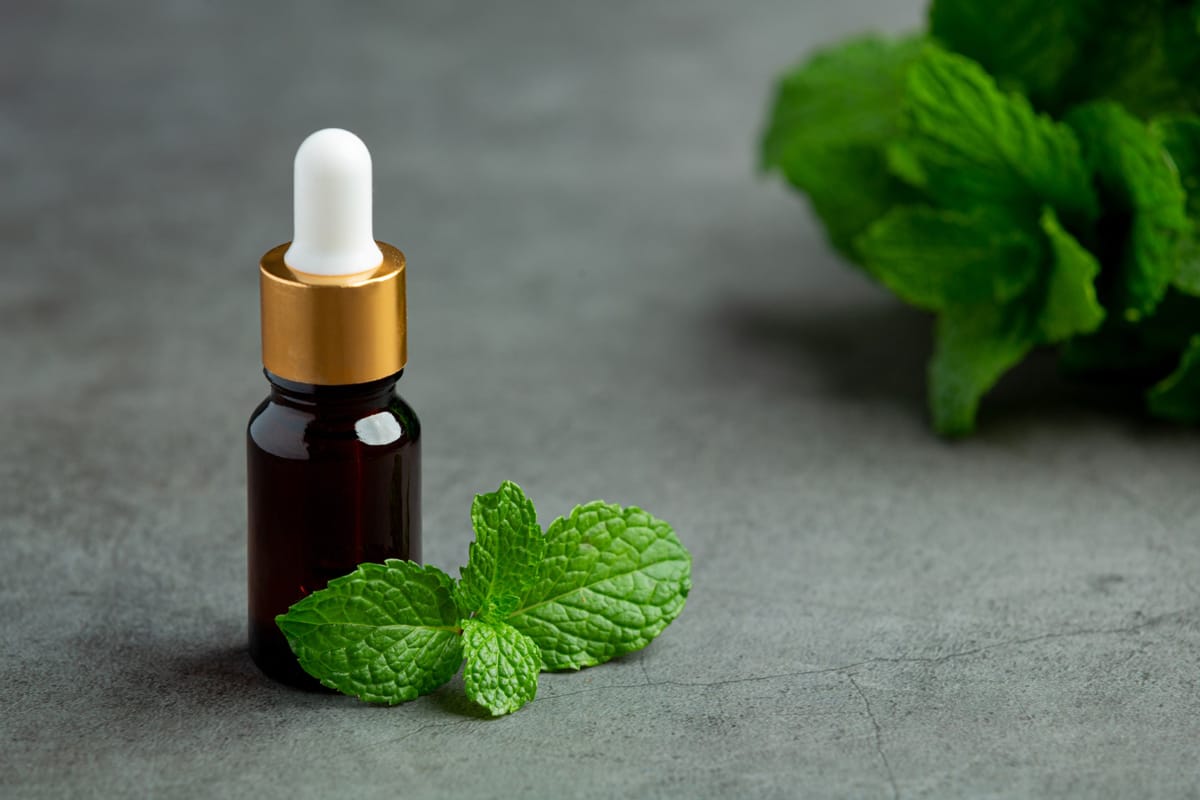Headaches can be a debilitating condition affecting millions worldwide. With the growing interest in natural remedies, essential oils have emerged as a popular alternative for managing headache symptoms. This comprehensive guide delves into the efficacy of essential oils for headaches, exploring the best options and how to use them safely and effectively.
Understanding Headaches and Essential Oils
Headaches can manifest in various forms, from tension headaches to migraine attacks. They can be triggered by stress, muscle tension, sinus pressure, and a host of other factors. Essential oils, extracted from plants, have been used in folk medicine for centuries to treat a range of ailments, including headaches. These oils can offer pain relief, reduce stress, and improve blood circulation, which may help alleviate headache symptoms.
The Science Behind Essential Oils for Headaches
Research suggests that certain essential oils have properties that can help in treating headaches. For instance, a placebo-controlled clinical trial may indicate that lavender essential oil can lower headache severity. These oils can affect the nervous system, stimulating blood flow and providing anti-inflammatory benefits, which are crucial in relieving pain.
Lavender Essential Oil: A Natural Soother
Lavender essential oil is one of the most popular essential oils for headaches. Its relaxing effects on both the muscles and the nervous system make it an excellent choice for stress headaches and migraine relief. Studies have shown that just a few drops of lavender oil can significantly reduce headache pain and frequency.
Peppermint Essential Oil: Cooling and Stimulating
Peppermint essential oil is renowned for its cooling peppermint oil sensation and ability to stimulate blood flow. These properties make it particularly effective in treating tension headaches. When applied to the forehead and temples, peppermint oil can provide a sense of relief from headache symptoms.
Eucalyptus Oil: Clearing Sinus Headaches
Eucalyptus oil inhalation is a traditional remedy for relieving sinus tension and headaches. Its components can help to clear sinus passages, reducing sinus pressure and headache pain. Eucalyptus oils are also known for their anti-inflammatory properties, which can soothe headaches caused by sinus issues.
Chamomile Essential Oil: Gentle and Relaxing
Chamomile essential oil, often associated with chamomile tea, is another excellent choice for headache relief. Its gentle, anti-inflammatory properties can help to treat headaches, especially when they are related to stress or anxiety. Topical chamomile application or inhalation can both contribute to reducing headache severity.
Rosemary Essential Oil: Improving Circulation
Rosemary essential oil is not only good for stimulating hair growth and improving memory but also for treating headaches. Its ability to improve blood circulation and relieve muscle tension makes it a suitable option for those suffering from headaches caused by physical strain or poor blood flow.
Ginger Oil: An Ancient Remedy
Ginger oil, with its long history in folk medicine, is known for its anti-inflammatory and pain-relieving properties. It can be particularly effective in treating headaches that arise from digestive issues or inflammation. A few drops of ginger oil can be added to a carrier oil for topical application or used in a diffuser for inhalation.
The Efficacy of Rosemary Oil in Treating Tension Headaches Rosemary oil is often touted for its ability to treat tension headaches, thanks to its anti-inflammatory properties and potential for lowering blood pressure. A component called 1,8-cineole, present in rosemary oil, is believed to alleviate pain and reduce inflammation, which can be particularly beneficial for those suffering from tension headaches. Studies have suggested that the inhalation of rosemary oil can lead to significant pain reduction, making it a promising natural remedy for those looking to manage their headache symptoms without the use of pharmaceuticals.
Furthermore, the use of rosemary oil in a placebo-controlled clinical trial has shown promising results, indicating that it may be more than just a traditional remedy. Participants in such trials have reported not only a decrease in the intensity of their headaches but also an improvement in their overall mood and mental clarity. This suggests that rosemary oil could play a multifaceted role in headache relief, not only helping to relieve pain but also relieving stress that is often associated with migraine headaches and tension.
Chamomile Oil: A Gentle Approach to Migraine Relief Chamomile oil, known for its gentle and relaxing properties, is another natural agent in the battle against migraine headaches. Its calming effect on the body and mind can help to relieve stress, which is a common trigger for migraine attacks. The sedative qualities of chamomile oil make it an excellent choice for those who experience migraine-related insomnia or anxiety. By promoting relaxation and sleep, chamomile oil can help prevent the onset of migraines and aid in creating a more balanced and headache-free lifestyle.
In addition to its stress-relieving capabilities, chamomile oil also possesses anti-inflammatory properties that can be beneficial in treating migraines. By potentially reducing the inflammation that contributes to the severity of a migraine attack, chamomile oil can help alleviate the pain and discomfort associated with these debilitating headaches. Its use as a complementary treatment in conjunction with conventional therapies is gaining interest, as more individuals seek out natural ways to manage their migraine symptoms and improve their quality of life.
Essential Oils in Clinical Trials for Headache Relief
The exploration of what essential oils are good for headaches has entered the realm of scientific validation through placebo-controlled clinical trials. These trials are the gold standard in medical research, designed to objectively assess the efficacy of treatments. For instance, a study published in the European Neurology Journal found that inhaling lavender essential oil significantly reduced the severity of migraine headaches compared to a placebo. This research not only supports the anecdotal evidence but also paves the way for integrating essential oils into conventional headache management protocols.
Continued research in this field is crucial, as it helps to distinguish between the actual therapeutic effects of essential oils and the placebo effect. Trials focusing on essential oils with anti-inflammatory properties may reveal their potential in treating headaches that stem from inflammation. Moreover, these studies can also shed light on the appropriate dosages and methods of application, ensuring that patients receive the maximum benefit from these natural remedies without experiencing any adverse effects or withdrawal symptoms.
Customizing Essential Oil Blends for Specific Headache Types
The versatility of essential oils allows for the creation of tailored blends that target specific headache types. For those wondering what essential oils are good for headaches, research suggests that a blend of peppermint, lavender, and eucalyptus oils can be particularly effective for tension headaches. This combination harnesses the cooling effect of peppermint, the soothing properties of lavender, and the sinus-clearing benefits of eucalyptus to provide relief.
In the case of migraine headaches, which are often more debilitating, a blend that includes ginger oil can be beneficial due to its anti-inflammatory properties. Adding rosemary oil, which is known to improve circulation, can further enhance the effectiveness of the blend. These customized mixtures can be prepared in advance and used at the onset of symptoms, offering a personalized approach to headache management.
Essential Oils as Preventative Measures for Headaches
The preventative potential of essential oils in managing headaches is an area of growing interest. Research suggests that certain oils, due to their anti-inflammatory properties, may help in reducing the frequency and intensity of headache episodes. For instance, the regular use of lavender oil, known for its calming effects, could potentially stave off tension headaches by mitigating stress, a common trigger. Similarly, rosemary oil, with its ability to improve circulation, might serve as a preventative measure for those prone to headaches caused by vascular issues.
Incorporating essential oils into daily routines, such as through aromatherapy or massage, can be a proactive approach to headache management. This method aligns with the holistic philosophy of addressing the root causes of ailments rather than merely treating symptoms. For example, peppermint oil, which is often touted as what essential oils is good for headaches, can be applied in diluted form to the temples at the onset of a migraine headache to potentially prevent it from escalating. As with any preventative measure, consistency and personalization of the individual's triggers and preferences are key.
The Efficacy of Essential Oils in Controlled Studies
Placebo-controlled clinical trials are the gold standard for determining the efficacy of medical treatments, and essential oils are increasingly being put to the test. One such study focused on peppermint oil's impact on migraine headache sufferers. Participants reported a significant reduction in pain intensity, highlighting peppermint's potential as a legitimate alternative to traditional pain relief methods. These trials are crucial in validating the anecdotal evidence that has long supported the use of essential oils for headaches.
Further research is needed to fully understand the scope of essential oils' effectiveness, but the results thus far are promising. For example, a placebo-controlled clinical trial investigating ginger oil, revered for its anti-inflammatory properties, could provide valuable insights into its role in treating headaches. As the body of evidence grows, healthcare professionals may become more inclined to integrate essential oils as a complementary therapy in headache treatment plans, particularly for patients seeking natural remedies for tension headaches and migraine relief.
The Role of Essential Oils in Complementary Headache Therapies
Essential oils are increasingly being recognized for their role in complementary headache therapies. A placebo-controlled clinical trial is the gold standard for evaluating the efficacy of such treatments. In these trials, essential oils have shown promise as a complementary therapy for those suffering from chronic headaches, including migraines and tension headaches. The trials help to differentiate the actual benefits of essential oils from the placebo effect, providing more concrete evidence of their therapeutic potential.
Moreover, the anti-inflammatory properties of certain essential oils, such as ginger and eucalyptus, make them a valuable addition to a holistic headache treatment plan. When used in conjunction with conventional treatments, essential oils can enhance overall well-being and contribute to a more comprehensive approach to headache management. As research continues to evolve, the integration of essential oils into headache therapies is likely to become more prevalent, offering sufferers additional avenues for relief.
The Synergistic Effects of Essential Oils on Headache Types
When considering what essential oils are good for headaches, it's important to recognize that different types of headaches may respond to different oils. For example, eucalyptus oil is renowned for its ability to relieve sinus tension, making it a go-to option for those suffering from sinus headaches. Its cooling sensation helps to alleviate the pressure and pain associated with nasal congestion. On the other hand, lavender oils are often recommended for tension headaches due to their calming properties, which can relax the muscles and ease the stress that often triggers these headaches.
The potential for combining multiple essential oils to create a synergistic effect is an exciting area of study. For instance, blending peppermint oil, which has a cooling effect, with the anti-inflammatory properties of eucalyptus oil could enhance the overall efficacy of treating headaches. Such combinations could be tailored to individual needs, offering a personalized approach to headache relief. As research continues to evolve, the knowledge of how to effectively combine essential oils could significantly impact the future of natural headache remedies.
How to Apply Essential Oils Topically for Headache Relief
When applying essential oils topically, it's crucial to dilute them with a carrier oil such as jojoba oil, coconut oil, or almond oil. This prevents skin irritation and ensures the oils are absorbed safely. Massaging the oil blend onto the temples, forehead, or neck can help relieve headaches by relaxing the muscles and reducing tension.
The Role of Carrier Oils in Essential Oil Application
Carrier oils serve as a base for essential oils, allowing for safe application on the skin. Common carrier oils include olive oil, coconut oil, and almond oil. They not only dilute the potency of essential oils but also aid in their absorption, enhancing the therapeutic effects of headache relief.
Inhalation: A Non-Topical Method to Relieve Headaches
Inhaling essential oils is another effective way to utilize their health benefits. This can be done through a diffuser, a steam inhalation, or simply by adding a few drops to a cold compress. Inhalation allows the therapeutic compounds to enter the bloodstream quickly, providing fast relief from headache symptoms.
Combining Essential Oils for Enhanced Effect
Blending essential oils can create synergistic effects that may enhance headache relief. For example, combining lavender and rosemary oils can provide both stress relief and improved circulation. It's important to research and test blends to find the most effective combination for your specific headache type.
Safety Considerations When Using Essential Oils
While essential oils offer many health benefits, it's essential to use them responsibly. Always conduct a patch test before applying a new essential oil topically to check for allergic reactions. Additionally, purchasing essential oils from reputable sources is crucial to ensure product manufacturers address safety and quality.
Consulting Healthcare Professionals
Before incorporating essential oils into your headache treatment regimen, consult with a healthcare professional. This is especially important for individuals with underlying health conditions, pregnant women, or those taking medication that could interact with essential oils.
The Impact of Lifestyle on Headache Management
Lifestyle factors such as diet, exercise, and stress management play a significant role in headache management. Incorporating essential oils into a holistic approach that includes these factors can lead to more effective and long-lasting headache relief.
The Future of Essential Oils in Headache Treatment
As interest in natural remedies continues to grow, we can expect further research into the efficacy of essential oils for headaches. This may lead to more targeted treatments and a better understanding of how these natural compounds can provide relief from headache symptoms.


Can essential oils cure headaches?
No, essential oils cannot cure headaches. However, they may provide relief from headache symptoms. Lavender, peppermint, and eucalyptus oils are known to reduce tension and stress, which can contribute to headaches. Aromatherapy with essential oils has also been found to alleviate headache intensity. It's important to note that essential oils are not a substitute for medical treatment. If you have frequent or severe headaches, consult a doctor.
How do I know which essential oil is best for my headache?
The choice of essential oil may depend on the type of headache you're experiencing. For example, lavender oil is often recommended for stress-related headaches, while eucalyptus oil may be better for sinus headaches. It's best to research and possibly consult with a healthcare professional.
Are there any risks associated with using essential oils for headaches?
Essential oils are generally safe when used correctly, but they can cause skin irritation or allergic reactions in some individuals. Always dilute essential oils with a carrier oil before topical application and conduct a patch test. Pregnant women, children, and those with medical conditions should consult a healthcare professional before use.

Essential oils offer a natural and effective way to manage headaches. Lavender, peppermint, eucalyptus, chamomile, rosemary, and ginger oils are among the best essential oils for headache relief. They can be applied topically with a carrier oil or inhaled for their therapeutic effects. Safety and proper usage are paramount, and consulting with a healthcare professional is advised before starting any new treatment. As research continues, the potential of essential oils in treating headaches is promising.













